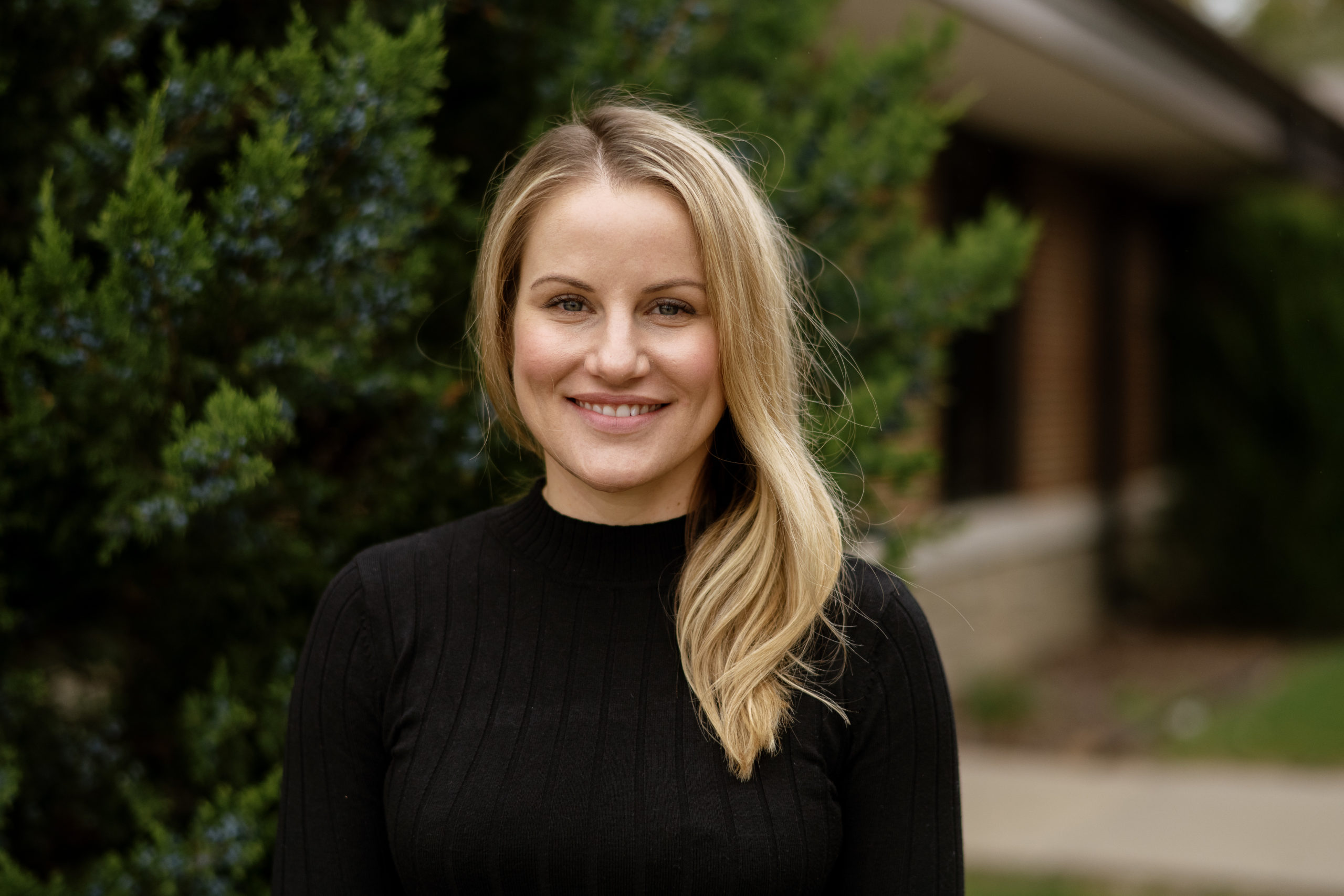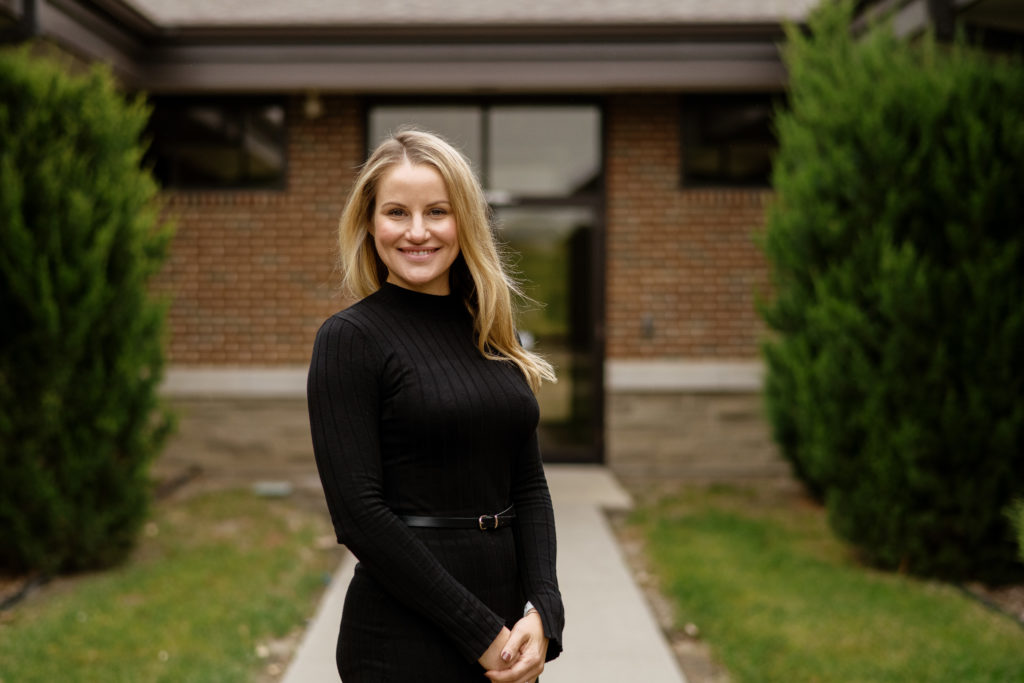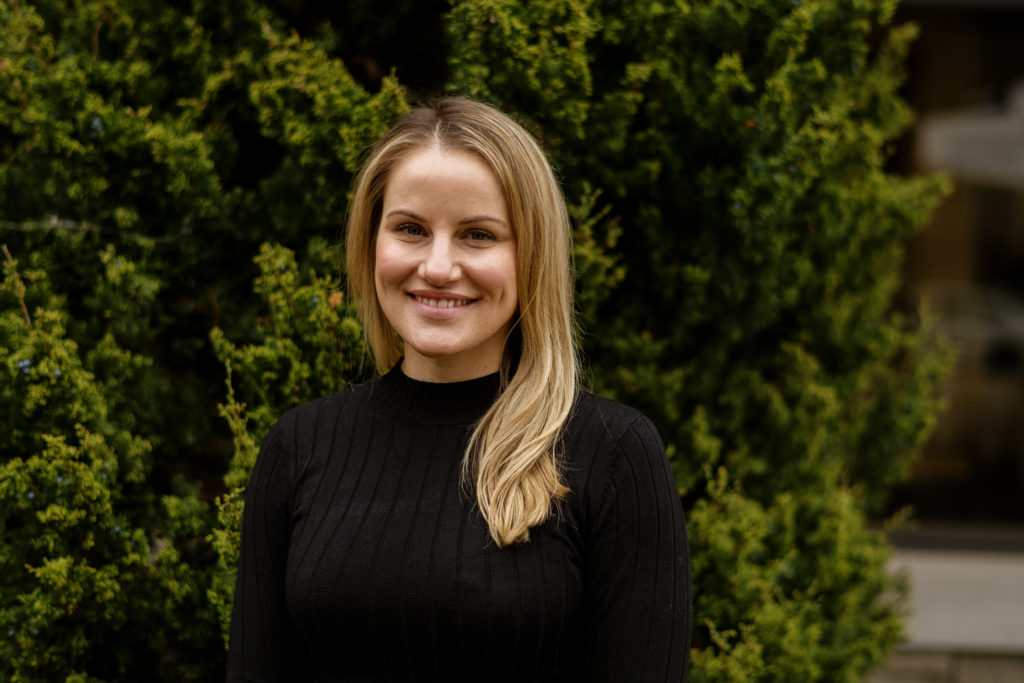
CATALYSTS INTERVIEW: Danielle Brommer
Danielle Brommer is the Chief Growth Officer for Lean TECHniques. Danielle has over ten years of experience in the tech industry and has spent the last five years helping LT grow its customer portfolio and build a team of just over 90 professional software consultants. Born and raised in Iowa, Danielle is happy she made her way back to the state in 2013 to take part in the startup and local tech community.
Can you give us an overview of your career and how it has evolved?
I entered the workforce in May of 2008 as the recession was upon us. I took my first job out of school in Property Management. It was the first offer I had received, and I just went for it. I soon found that this role would not be challenging for me, and I wanted to get away from sales. I sought out a recruiter to help me make a move in 2010, and when the agency nearly offered me a job on the spot, I took it thinking this was the most brilliant opportunity and I could learn about all the companies in the area, find out how they hire and apply for the roles I wanted. I ended up loving technology recruitment and stuck with it for the next six years – I was helping people find meaningful work, learning about how companies applied technology to solve a variety of problems across various industries. Fast forward to 2016, and I knew I needed to make a change. The excitement had run its course, and I needed a different challenge. I wanted to find something closer to technology, more entrepreneurial, and I found just that at Lean TECHniques. A software consultancy that at the time needed both client and engineering talent growth. I could bring my experience in technology to a growing startup and learn a lot about how to build a business – operations, HR, legal, marketing, sales, you name it, I have had a hand in it.
Why do you choose to live and work in Iowa?
Family. I moved away after college and spent time in Milwaukee, WI, and Hackettstown, NJ (spending most of my time in Philly, Manhattan, D.C. – up and down the east coast). It was a great opportunity to explore city life, but I made my way back to Iowa in 2013 and am so glad I did.
Another benefit of Iowa life is the lower cost of living has allowed me to travel and explore the world beyond the Iowa borders.

What is Lean TECHniques, and how does its company culture prioritize diversity, equity, and inclusion?
Lean TECHniques (LT) is an Iowa-based software & management consultancy, committed to making Iowa a leader in technology. We help several local organizations move into the digital world, with the intent to enable them to better serve their customers and improve their employee experience along the way through a more modern engineering culture. Our core service offerings are Digital Transformation, IT Modernization, and software delivery.
As for our culture, our team is our top priority, and their experience with LT matters. We’re always thinking about making sure we demonstrate our respect for each team member, providing them with a custom experience based on their needs, and looking for feedback to improve. I served on the TAI D&I team for two years (now known as DEI) and took away many great insights and practices we could implement immediately). I think this reinforced the efforts we were already putting in place but amplified the need to be intentional. This includes everything from our recruitment efforts to reach a wider audience to retention efforts by way of making sure each team member has the support and resources they need to be successful while also challenging them to follow their specific personal and professional goals, and implementing and adhering to equal pay for equal work back by annual salary research. We do some pretty cool things around sharing each team members’ compensation, market research, and overall profitability – many people have appreciated the transparency and the ‘why’ behind our decisions around this sensitive matter. We conduct an annual survey asking our team members how they would rate their experience at LT based on ‘I feel like I can be myself at LT’ – this is the metric we use to determine whether we’re on the right track to creating an inclusive workplace.
We created an LT employee Experience team, essentially an internal workforce committee that focuses on all things employee-related including a DEI emphasis. We have two team members in particular that have asked to spearhead the DEI efforts for LT, and we’re letting them run with it. They’re attending the SHRM Inclusion conference and the Greater DSM Partnerships Inclusion Summit next month. If it’s a passion of theirs, we want to give them the space and resources to explore and bring back ideas for our organization to consider and implement – our team will benefit greatly from this approach. I think this, in particular, highlights that we’re still learning how we can be a better employer for our team and prospective team members.
Lean TECHniques’ core principles are humility, responsibility, autonomy, professionalism, curiosity, community, and simplicity. Can you speak to how Lean TECHniques embodies DEI in a few of these principles?
I think the two that come to mind are humility and curiosity. We are the first to admit there is more to learn, and improvements to be made to become a more equitable and inclusive workplace – where people want to work. We seek to understand different perspectives, and we ask for feedback constantly. We have embraced the feedback our team members provide, as we know we have blindspots. Those that raise their hand and say ‘I have an idea’, or ‘I think we should try this’, for example, spearheading our internal DEI efforts within our organization, we’re all for it!
Community is another principle at LT. We are a company that was inadvertently born out of a tech community event, and we continue to give and receive from that same robust local tech community. We also encourage community internally, creating opportunities for people to share and connect, yes on tech topics, but other areas of interest as well. One lunch-and-learn session that specifically comes to mind, and I think embodies our open culture, is a session on Brene Brown’s Courage to be vulnerable. Just over two years ago, one of our team members asked Brandon, our CEO, and I, if she could share her coming-out story and her transgender transformation journey with our team. It was the first public forum she shared her story – it was powerful. I think that opened the door to questions and open dialogue around this topic.
I’d say that although transparency isn’t one of our seven core principles, it’s a practice we live by. We’re very open about how we operate our business, and I think in doing so, we demonstrate we want an open, honest and safe place to be ourselves, ask questions, and challenge us to be better.
How do you encourage innovation and idea-sharing in the Des Moines community outside of Lean TECHniques?
When you get to know me, you know I like to talk… a lot. It’s actually how I process ideas, and I love sharing ideas with anyone willing to share with me. I have spent a lot of time in the local Des Moines community. I served on the board for LEAP – Leadership Education Advancement Pipeline, a Downtown Des Moines Chamber program focused on empowering women and underrepresented communities to reach their full potential. I was a mentor and committee member for the Central Iowa SHRM’s program for emerging professionals. I have served on the boards of PMI, TAI’s DEI committee, and the past two years with Tech Journey, focusing on a younger audience and exposing students to the world of STEM. That’s been a really fun program to engage with people interested in developing the future of our state.
I attend local conferences and user groups such as AgileIowa, Product Tank, CIRAS, Greater DSM Partnership Small Business. I think it’s important to hear what’s going on in the community around you, it informs decisions I make as a leader at Lean TECHniques, and I hope it reinforces that innovation and continuous learning is critical to the success of our state.
I think it’s important to hear what’s going on in the community around you, it informs decisions I make as a leader at Lean TECHniques, and I hope it reinforces that innovation and continuous learning is critical to the success of our state.
What was your passion growing up, and what did you envision for your career?
I think my passion was making people happy. I wanted to please everyone around me, and I think this is still a driving force for me, good or bad.
My earliest memory of any career aspirations was being an astronaut, then a criminal psychologist, but when reality struck, the realization that it would be eight or more years of school beyond high school to get a paycheck, I realized neither of these fantasies were options. So ‘business’, whatever that was, is what I pursued. I still remember wanting to wear a power skirt suit and make all the deals. I landed in technology a couple of years after graduation, and I knew I had to stay associated with it in some capacity. Technology was/is the future, and I am really happy I had that insight back then.
I never really had a clear vision for what I wanted to be when I grew up, and frankly, I am still sorting through that to this day, but I landed right where I was meant to be. I am a big believer in this being a journey and had I had a final destination in mind, I may not have pursued the opportunities that were presented. I’d encourage anyone to be open-minded to work in this sector.
Technology was/is the future, and I am really happy I had that insight back then.

Tell us about any mentors you may have had and how they influenced your career path?
I have so many people that I have been fortunate to call mentors. My mom is the first to come to mind. She was a successful small-business owner who built her business from the ground up and still operates independently today. She followed her passion in travel and opened a travel agency in West Des Moines. She did everything she could to set a good example for all of her kids and work to provide for the family and make all the volleyball games, track meets, and anything else we had going on. I don’t even think she knows how much of who she is was instilled in me – and I am forever grateful.
I have found mentorship with several female leaders, including my aunts, both of whom are driven, boss-ladies, and successful in their own right. I remember one in particular that took me to her ‘bring your daughter to work day,’ and I was impressed by all the power skirt-suits and offices with views at the Clive Bankers Trust! My sister and sister-in-laws that I turn to for advice on not only navigating my career but how to balance work/life/motherhood/partnership, and plenty of friends and peers.
My business partners also serve as mentors. We have a good dynamic and challenge each other daily. I also have a monthly lunch with my brother, who is an executive leader in engineering. Nick Malcolm was my first official mentor in HRIS, and I’d say he was instrumental in helping me build the confidence necessary to make a career move to LT.
As of late, I have found the value in a large mentorship and community network to learn from and contribute to. I have intentionally sought out a peer network in HR, Technology, sales, and leadership and plan to continue doing so. The bigger my network, the more I can share and learn.
What advice would you give an underrepresented person considering a tech career path or aspiring to a tech leadership role?
The first step is the hardest, but if I look back at my journey, and more specifically my move to LT – I spent a lot of time researching and understanding the space beyond what I knew from my prior experience. IIBA, PMI, 1M Cups, Gravitate, AgileIowa – you name it, I was immersing myself in anything I could learn about making my way deeper into the Iowa tech community. That community offers opportunities – you just have to take one.
Why is it important to have people of different backgrounds in technology?
Diversity of ideas, in turn, creates solutions. There are so many blindspots in all that we do. A diverse workforce may help to expose them sooner.
If we intend to make Iowa not only a great place to work, but a leader in technology, we have to have a focus on this aspect.
As you look to the future, how would you like to see diverse talent development in Iowa?
Organizations that are focused on investing in team members and prospective team members, not just reaping the benefits of their output, will be the ones that survive and thrive.
The pandemic has highlighted that employers, communities, and cities for that matter, are going to have to meet people where they are and invest in their professional development – which doesn’t mean strictly job training, but continuing education, offering a more flexible schedule, accommodating different wfh/wfo location preferences, and taking chances on someone who is eager to learn, but may lack the hands-on experience to take on a new role.
We may need to look at creative working arrangements, consider more part-time, internship, and apprenticeship options, leverage boot camps and continue providing resources to those that show interest in continuing to develop via TAI, the Greater DSM Partnership, Iowa Chambers, and CIRAS just to name a few.
The final note on this topic is that we can do the work to develop a curriculum, provide resources to support talent development, and build a diverse talent pipeline, but they have to have jobs at the end of that path. And right now, they probably do. I believe that employers need to do their part in hiring those going through development programs, demonstrating their commitment to entering the tech industry, that’s half the equation.
If we intend to make Iowa not only a great place to work, but a leader in technology, we have to have a focus on this aspect. If we don’t, another state will, and tech professionals may not be here in Iowa.

